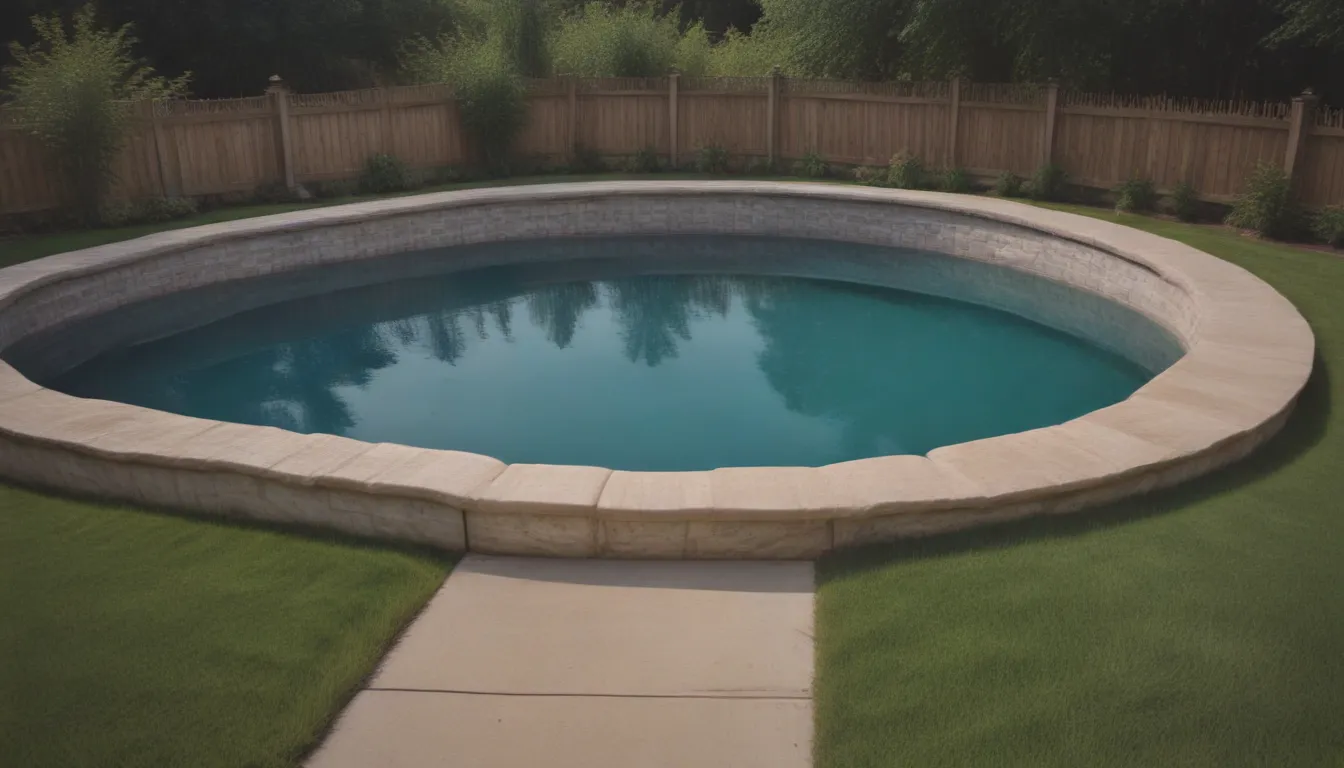Comprehensive Guide to Essential Pool Chemicals for Maintaining a Clean and Clear Above-Ground Pool

Having an above-ground pool in your backyard is a great way to stay cool and entertain friends and family during the hot summer months. However, owning a pool comes with the responsibility of ensuring that the water remains clean, clear, and safe for swimming. This is where pool chemicals come into play. In this comprehensive guide, we will delve into the essential pool chemicals needed to maintain your above-ground pool, how they work together, and why they are crucial for the longevity of your pool and its equipment.
Importance of Pool Chemicals
Pool chemicals play a vital role in keeping your pool water free from bacteria, algae, and other contaminants, creating a safe and enjoyable swimming environment. By understanding the different types of pool chemicals and their functions, you can effectively maintain your pool’s chemical balance and appearance.
The Four Essential Pool Chemicals
Let’s explore the four essential pool chemicals that every pool owner should be familiar with:
-
Chlorine: Chlorine is the primary bacteria-fighting chemical responsible for sterilizing pool water. It helps prevent the growth of harmful bacteria and algae, ensuring that your pool remains clean and safe for swimming. Chlorine should be checked weekly to maintain the proper balance.
-
pH: The pH level of your pool water is crucial for maintaining water balance. Monitoring the pH level ensures that the water is neither too acidic nor too basic, allowing the chlorine to effectively kill bacteria while remaining safe for swimmers. Commercial powders can be used to adjust the pH level if needed.
-
Alkalinity: Alkalinity plays a key role in stabilizing the pH level of your pool water, which in turn enhances the effectiveness of chlorine. Ensuring proper alkalinity levels help prevent fluctuations in pH, which can damage pool equipment and affect water clarity. Alkalinity should be checked every two weeks.
-
Calcium: Calcium helps prevent calcium stains on hard surface pools and stabilizes alkalinity levels. Maintaining the right calcium levels is essential to prevent scaling on pool surfaces and corrosion of metal fittings. It is recommended to check calcium levels every two weeks.
By regularly monitoring and adjusting these four essential pool chemicals, you can ensure that your pool water remains clean, clear, and safe for swimming.
Best Practices for Pool Chemical Maintenance
Maintaining the chemical balance of your pool requires regular testing, monitoring, and adjustment of pool chemicals. Here are some best practices to help you achieve optimal water quality in your above-ground pool:
-
Weekly Testing: Test your pool water at least once a week to monitor chlorine, pH, alkalinity, and calcium levels. This will help you identify any imbalances and take corrective actions promptly.
-
Proper Application: When adding pool chemicals, follow the manufacturer’s instructions carefully to avoid over or under-dosing. Use a pool chemical dispenser or float to evenly distribute the chemicals throughout the water.
-
Safety Precautions: Always handle pool chemicals with care and wear protective gear, such as gloves and goggles, when handling and applying them. Store pool chemicals in a cool, dry place away from direct sunlight.
-
Maintain Equipment: Regularly check and maintain your pool equipment, such as filters and pumps, to ensure they are functioning correctly. Properly functioning equipment will help maintain water circulation and filtration, aiding in chemical balance.
-
Professional Assistance: If you are unsure about how to maintain your pool chemicals or encounter persistent water quality issues, consider seeking help from a professional pool maintenance service. They can provide expert advice and assistance in maintaining your pool.
By following these best practices and staying informed about the essential pool chemicals, you can enjoy a clean, clear, and safe above-ground pool for years to come.
Conclusion
In conclusion, understanding the importance of pool chemicals and how they work together is essential for maintaining a clean and clear above-ground pool. By regularly testing and adjusting chlorine, pH, alkalinity, and calcium levels, you can ensure that your pool water remains safe and inviting for swimmers. Remember to follow best practices for pool chemical maintenance and seek professional assistance when needed to keep your pool in top condition. With proper care and attention, your above-ground pool can provide endless hours of fun and relaxation for you and your family.





